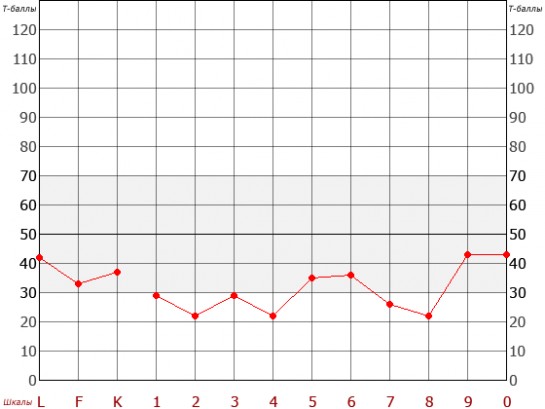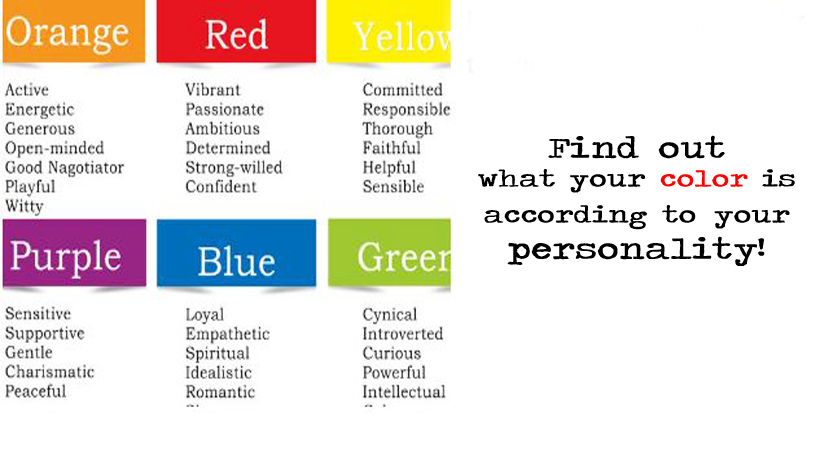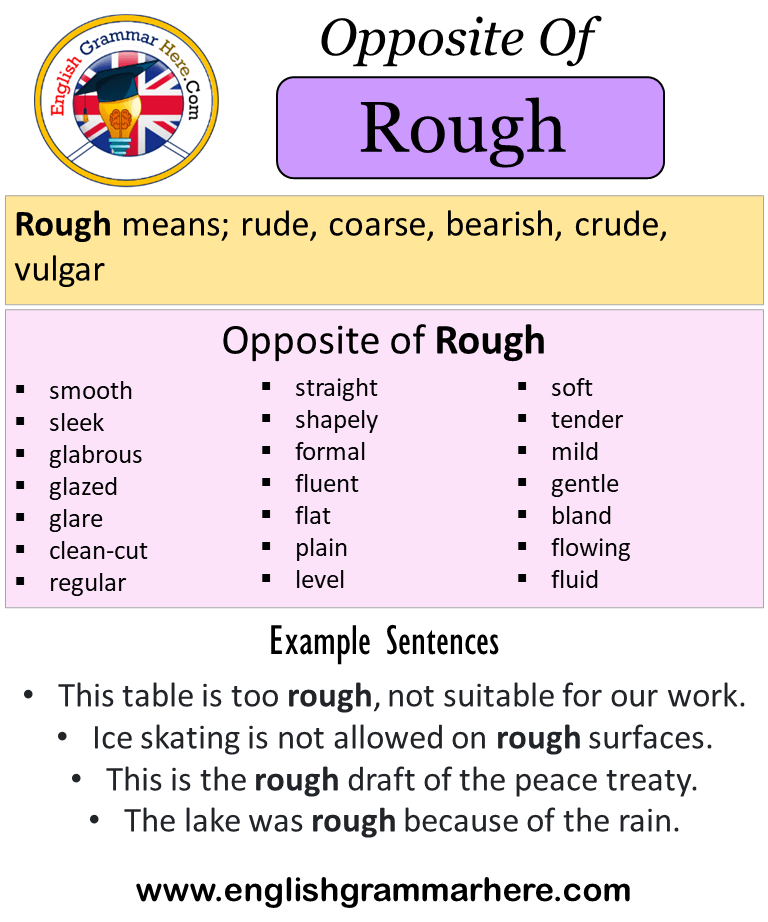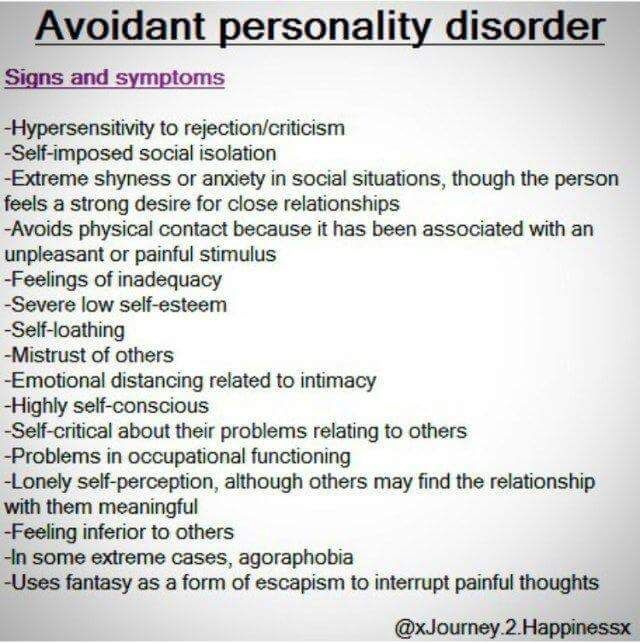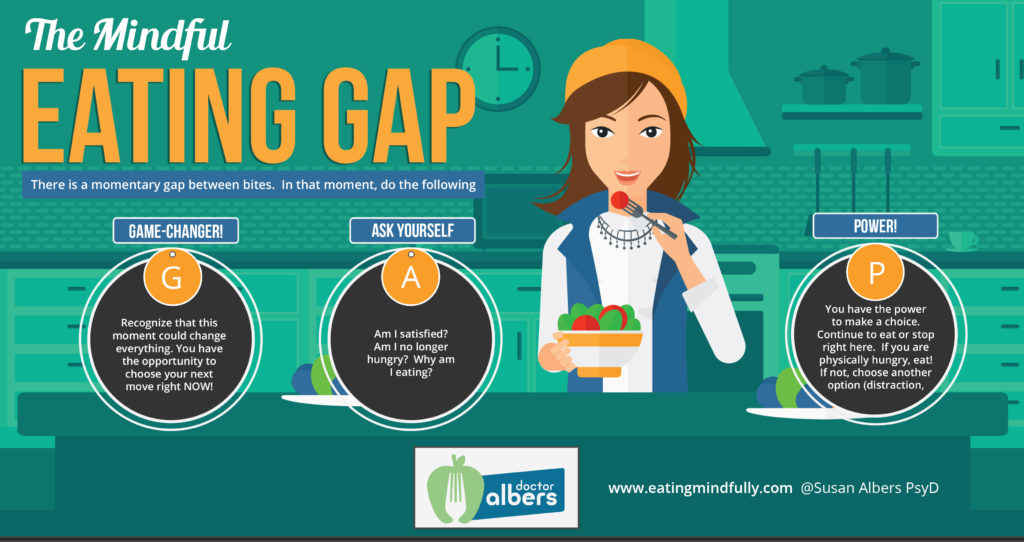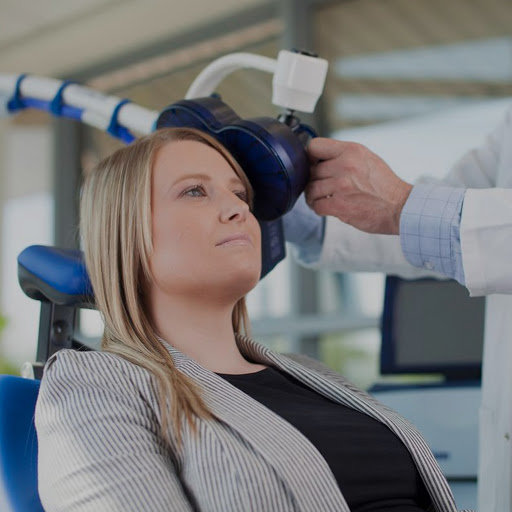Anxiety affecting relationship
The Effect of Anxiety on your Relationships
It’s not uncommon for there to be anxiety in relationships. However, when anxiety grows beyond ordinary worry it can become a serious issue that affects the mental well-being of those involved. If you suffer from anxiety, you are probably no stranger to the effects this mental health condition can have on your relationships. Living with these conditions can generate fear, worry, sadness, and mood swings. Symptoms may carry over into your marriage or relationship and harm both partners. When left untreated, an anxiety disorder can also harmfully impact your friendships and other personal relationships. Therefore, finding ways to cope with your anxiety is important in maintaining healthy relationships both in one’s personal life and outside it. Fortunately, Harmony Bay Wellness understands the impact and offers numerous therapeutic services to help individuals improve and maintain their mental health.
What is Anxiety?
Different forms of anxiety can affect your relationships differently. Generalized anxiety disorder is the most common anxiety disorder (GAD). GAD Is described as persistent and excessive worry about various things. Those with GAD may find it impossible to control their worry. Symptoms of a generalized anxiety disorder include:
- Feeling nervous or on edge
- Having a sense of impending danger
- Feeling weak or tired
- Difficulty concentrating
- Having trouble concentration
- Gastrointestinal problems
Usually, this kind of mental health issue can be treated through therapy that focuses on the root causes of the individual’s symptoms. Overcoming anxiety is an ongoing process that requires patience. However, at Harmony Bay Wellness, our counselors and therapists have a deep understanding of how GAD affects the lives of clients. By offering individuals numerous treatments, Harmony Bay Wellness is able to meet the needs of clients no matter what issues they may have.
The Effects of Anxiety in Relationships
Here are some ways anxiety can damage your relationship:
- Being Overly Dependent: Those who suffer from generalized anxiety disorder may become overly dependent on their partner.
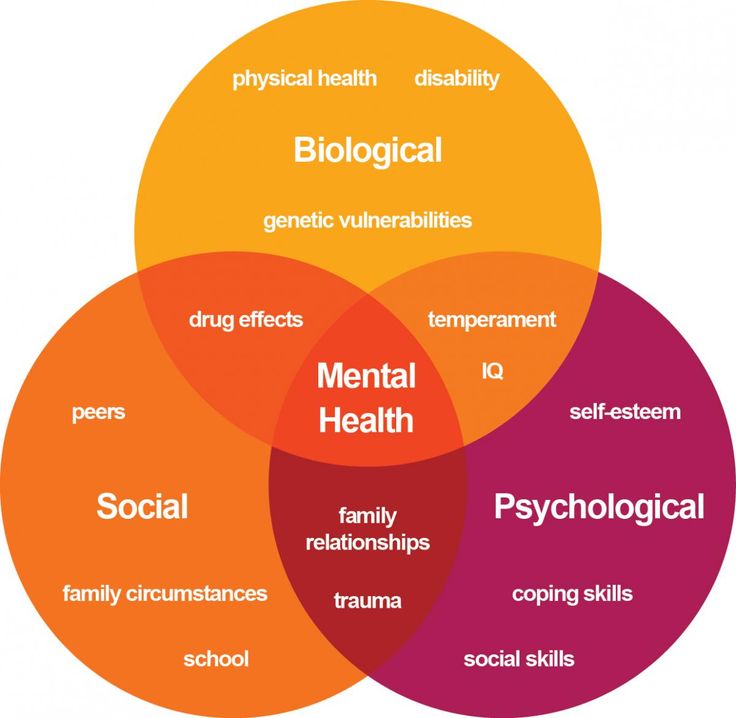 This may include overthinking their relationship, fearing rejection, getting anxious if a partner does not respond quickly, and planning for the worst. Those who are overly dependent may also feel like they need constant reassurance from their partner.
This may include overthinking their relationship, fearing rejection, getting anxious if a partner does not respond quickly, and planning for the worst. Those who are overly dependent may also feel like they need constant reassurance from their partner. - Social Isolation: Sometimes, those with anxiety may withdraw from their relationships by isolating themselves to avoid any negative feelings. This can make maintaining a relationship difficult. To avoid this, it is important to open up to your partner and let them know how you are feeling.
- Constant Worrying: Those with anxiety may feel like they are constantly living on edge. If you find yourself worrying often, you may be putting a strain on your partner. It is important to learn how to effectively communicate with your partner to understand each other’s emotions. If you feel like you are worrying too much, it may be time to speak to a therapist.
While not a comprehensive list of the effects of GAD on relationships, this can give you a sense of how mental health issues can cause difficulties between friends, loved ones, and family. There are numerous contributors to anxiety in relationships. Some of these stressors can be environmental and situation-specific while others are due deep or unresolved issues within the individual or between individuals.
There are numerous contributors to anxiety in relationships. Some of these stressors can be environmental and situation-specific while others are due deep or unresolved issues within the individual or between individuals.
Anxiety Treatment at Harmony Bay Wellness
Maintaining your relationship while you are experiencing anxiety may seem like a struggle. However, there are many steps you can take to manage your anxiety so you can have a happier and healthier relationship. Harmony Bay Wellness in Clementon, New Jersey, provides individualized anxiety treatment to help you overcome your condition. Do not let your anxiety affect your relationship. Reach out to Harmony Bay Wellness today at [Direct].
How Your Anxiety Disorder is Affecting Your Romantic Relationship
Generalized anxiety disorder (GAD) is characterized by excessive worry over everyday occurrences that usually do not produce fear in the general population. The worrying is almost impossible to control and can often negatively affect your romantic relationships. Romantic relationships are challenging. A healthy and prosperous romantic relationship requires patience, communication, hard work, empathy, and both individuals must be independently happy. Mental health disorders such as anxiety can interfere with a relationship if the individual is not aware of their signs and symptoms or if they allow their mental health disorder to go untreated. However, mental health disorders, in particular, anxiety does not have to break your relationship or put a strain on it to the point where it becomes difficult to enjoy. By understanding anxiety in general and how it affects both your partner and your relationship, you can love each other more deeply and connect in a new way. If you are struggling with anxiety, it is common to continuously ask yourself questions and doubt your relationship. The following are some typical examples of thoughts and issues that may keep you up at night:
Romantic relationships are challenging. A healthy and prosperous romantic relationship requires patience, communication, hard work, empathy, and both individuals must be independently happy. Mental health disorders such as anxiety can interfere with a relationship if the individual is not aware of their signs and symptoms or if they allow their mental health disorder to go untreated. However, mental health disorders, in particular, anxiety does not have to break your relationship or put a strain on it to the point where it becomes difficult to enjoy. By understanding anxiety in general and how it affects both your partner and your relationship, you can love each other more deeply and connect in a new way. If you are struggling with anxiety, it is common to continuously ask yourself questions and doubt your relationship. The following are some typical examples of thoughts and issues that may keep you up at night:
- What if he doesn’t love me as much as I love him?
- What if she is lying to me?
- What if he is hiding something from me?
- What if my anxiety ruins our relationship?
- What if we break up?
- What if I’m always the first one to reach out?
Additionally, there are many anxiety-motivated behaviors individuals often encounter in relationships.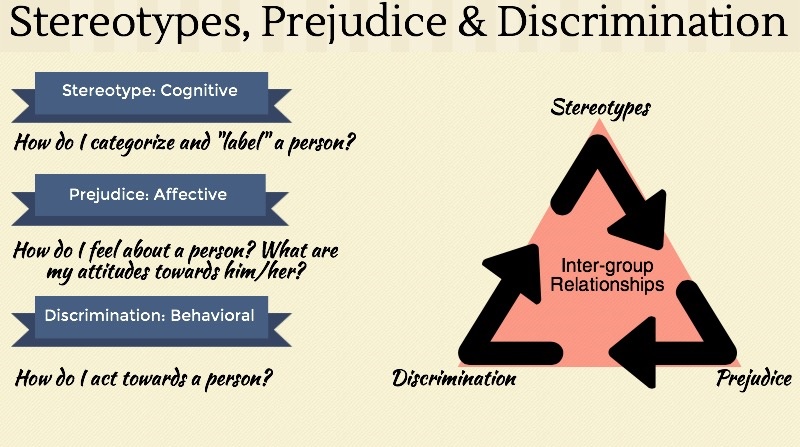
- Being angry and/or irritable
- Being controlling
- Being distracted and having trouble focusing
- Coming across as overly critical
- Avoidant or passive-aggressive behavior
- Perfectionism
Anxiety and co-dependency
Many individuals with generalized anxiety disorder have an intense desire for closeness to their romantic partners depending on them regularly for support and reassurance, which often leads to overdependence and co-dependent behaviors. In addition to being overly dependent, individuals with a generalized anxiety disorder also tend to overthink, plan for the worst-case scenarios and have an intense fear of rejection. These traits can place an enormous amount of strain on a relationship and can make both partners feel inadequate, stressed and overworked.
Avoidance in relationships
On the other end of the spectrum, some individuals with generalized anxiety became overly independent and detached from their partner and their emotions.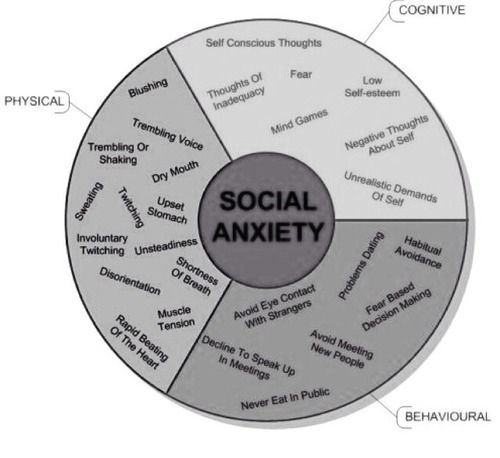 They may avoid negative emotions by not revealing their feelings, opening up, or being vulnerable. An individual who is avoidant of close relationships may be described as cold, emotionally unavailable, lacking empathy, or even stand-offish. This can create a lot of negative energy and distance in a romantic relationship, which often leaves the other partner feeling inadequate and unwanted.
They may avoid negative emotions by not revealing their feelings, opening up, or being vulnerable. An individual who is avoidant of close relationships may be described as cold, emotionally unavailable, lacking empathy, or even stand-offish. This can create a lot of negative energy and distance in a romantic relationship, which often leaves the other partner feeling inadequate and unwanted.
Managing your anxiety in your relationship
It is up to both you and your partner to understand your anxiety disorder and learn how to control it. One of the most important things is to keep in mind that your partner is not your therapist and should never act as if he/she is your therapist. We often try to want to “fix” our loved ones, but instead of acting as a therapist we should encourage our partners to seek professional therapy. Apart from going to therapy, one of the most effective ways to cope with anxiety in a relationship is to talk about it openly, honestly and directly with your partner.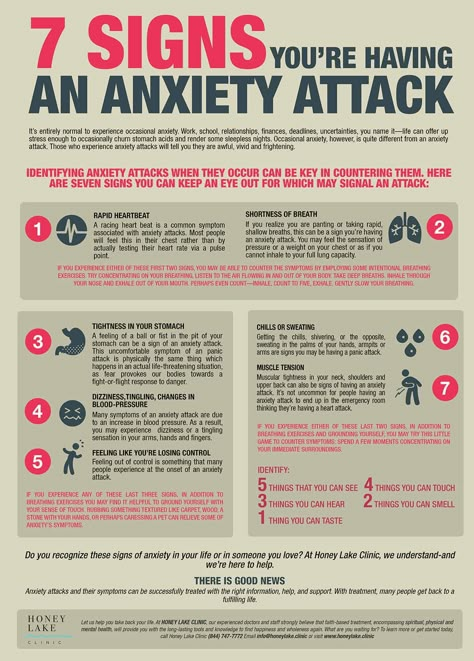 Do not try to hide it or be shameful of it but rather it is important to discuss your feelings openly. Managing your reactions is an important coping skill to navigate when your partner’s anxiety becomes overwhelming for the relationship. When your partner talks about his or her anxiety in the context of your relationship, it’s easy to take it personally and become upset. It’s easy to interpret the anxiety as selfishness, rejection or an attempt to create distance but instead, you must be calm, listen to your partner and understand it is the anxiety causing your partner to potentially act out. Managing your reactions is more important than managing your partner’s reactions as it can help you be there for your partner and set boundaries. If your partner’s anxiety causes you to flip out every time they bring it up, it will be impossible to support them. If your partner is taking steps to work on anxiety, remember to acknowledge that and “celebrate their strength” when possible.
Do not try to hide it or be shameful of it but rather it is important to discuss your feelings openly. Managing your reactions is an important coping skill to navigate when your partner’s anxiety becomes overwhelming for the relationship. When your partner talks about his or her anxiety in the context of your relationship, it’s easy to take it personally and become upset. It’s easy to interpret the anxiety as selfishness, rejection or an attempt to create distance but instead, you must be calm, listen to your partner and understand it is the anxiety causing your partner to potentially act out. Managing your reactions is more important than managing your partner’s reactions as it can help you be there for your partner and set boundaries. If your partner’s anxiety causes you to flip out every time they bring it up, it will be impossible to support them. If your partner is taking steps to work on anxiety, remember to acknowledge that and “celebrate their strength” when possible.
How types of attachment affect sexual relationships
16007
Man and womanKnowing yourselfMan among people
There are different types of attachment that directly affect our relationships with partners:
-
anxious,0022
-
reliable.

If a person has a reliable type of attachment, he easily approaches people. He trusts others, loves and accepts love.
Anxious type of attachment - keeps a person in constant fear that a loved one will leave, leave. People with this type of attachment seek constant approval from others.
A person with avoidant type cannot approach others without fear. He prefers independence, does not trust people. nine0003
Anxious-avoidant type of attachment makes a person seek close relationships, but at the same time avoid them.
It cannot be said that a reliable type of attachment is the most convenient and comfortable in a relationship. Or that “reliable” people will have more happiness in life. But they will be much easier to live through a variety of events.
In general, a person tends to change his behavior depending on situations. And even if he has an anxious type of attachment, then at some point a reliable type may appear, for example. nine0003
nine0003
It can be assumed that sexual life also depends on the type of attachment a person has.
1. Alarm type
Svetlana always worries when her husband Egor forgets to call back or do what she asked. She immediately perceives this situation as an attitude towards herself - they say, since he does this, then I am not important for him ...
love." nine0003
Anxious type is characterized by excessive anxiety, constant looking at others - how others perceive me. If suddenly there is even the slightest hint of the unavailability of a partner, then there is an outbreak of jealousy, distrust. All this is reinforced by a constant feeling of self-doubt, low self-esteem, negative self-perception.
A mixture of distrust of a partner plus worries about being unattractive is a recipe, to put it mildly, for not very good sex. And all because one of the partners cannot relax, is constantly worried and worried. nine0003
People with an anxious type of attachment, oddly enough, may have more sexual partners, they are prone to cheating.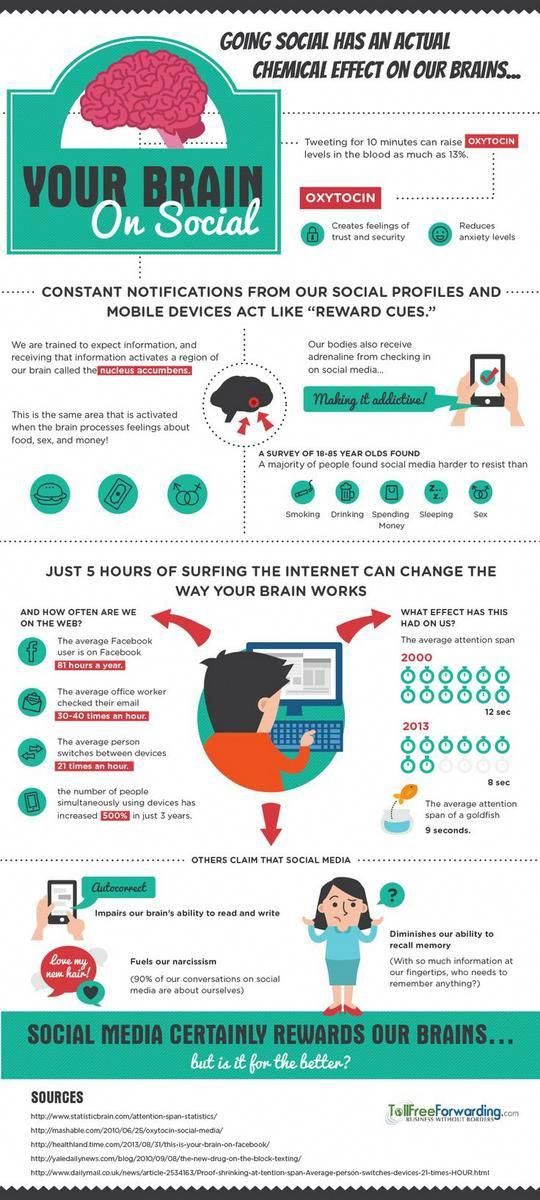 Moreover, they can agree to sex even when there is no particular desire, because of the fear of being rejected. For the same reason, they do in bed what they don’t really want.
Moreover, they can agree to sex even when there is no particular desire, because of the fear of being rejected. For the same reason, they do in bed what they don’t really want.
2. Avoidant
Mark has been married for ten years. Recently, quarrels with his wife have become more frequent: she complained that Mark does not talk about his feelings, he reacts negatively to her words and requests. Mark sincerely wanted his wife to be happy, but did not know what to do for this. And each "debriefing" caused him even more stress. nine0003
People with an avoidant type of attachment find it difficult to express emotions, they do not believe in "love to the grave", they are afraid of intimacy. They are often not satisfied with the relationship, and they themselves contribute to the fact that they do not work out.
In general, for people with an avoidant type of attachment, long-term relationships are very rare. And sex is either fleeting or rarely happens at all. And if it does happen, it does not bring pleasure.
Such people engage in sexual intercourse, for example, to increase status and respect in the eyes of others (for example, loss of virginity in adolescence). Or they seek to relieve tension, in which case casual relationships are the best fit for them. nine0003
3. Disorganized
Karina was abused by her father from the age of 12. He convinced her that this is how love is manifested through sex. She thought it was a normal relationship. However, at the age of 15, she learned that everything was not so. But for many years, until she decided to go to a psychologist, the girl put an equal sign between sex and love. She was sure that she was not worthy of a serious relationship. But at the same time she was sexually addicted. By the age of 25, she could not even remember how many sexual partners she had ...
People with this type of attachment feel unworthy of a serious relationship, may seek casual relationships, and at the same time tend to be sexually addicted.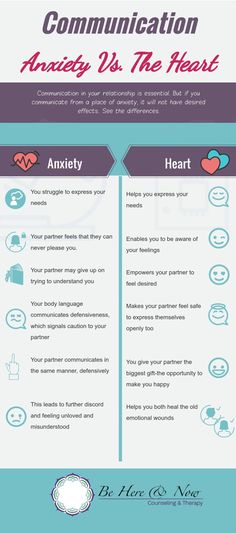 Low self-esteem, confidence that love is not for them, distrust of a partner - this is all about a disorganized type of attachment.
Low self-esteem, confidence that love is not for them, distrust of a partner - this is all about a disorganized type of attachment.
They experience intense love and passion. But then they are afraid of intimacy. They usually say about such people - "he does not know what he wants." And even if a serious relationship happens, then a partner with a disorganized type of attachment easily agrees to be on the sidelines. nine0003
4. Reliable
Such people are set for long-term relationships, casual relationships are very rare. Most often they are self-confident, less worried about their appearance, their own value. And usually satisfied with sexual relationships. For them, sex is not so much a pleasure, but a way to express love and tenderness to a partner.
A reliable type of attachment characterizes the desire for long-term, serious relationships based on trust and emotional closeness. If it is possible to build such relationships, then the sex life of such people plays with bright colors, they are ready to experiment in bed.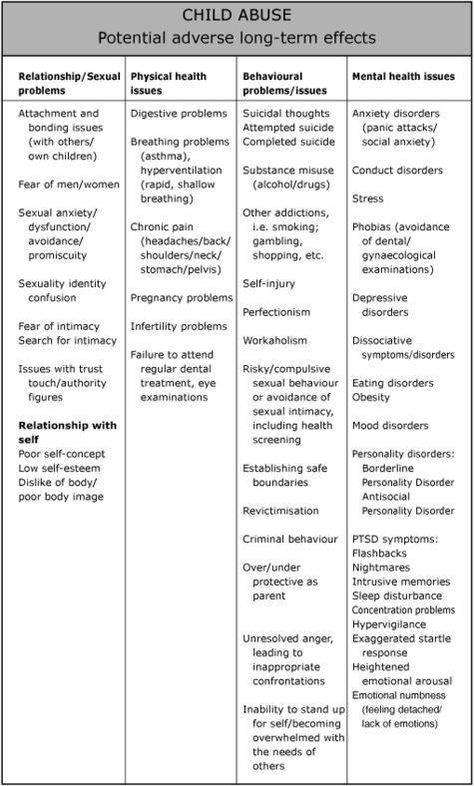 nine0003
nine0003
IS IT POSSIBLE TO CHANGE THE TYPE OF AFFECTION?
Long-term studies have shown that 70% of people remain with the type of attachment that was formed in childhood. Over time, the type of attachment can transform and change, but never disappears.
You can practice mindfulness - catch yourself thinking how you are communicating with a specific person. What thoughts and feelings do you experience from a sexual partner, why does the desire to change partners arise or, conversely, there is no sexual desire. nine0003
And before you say any serious words or take any action, ask yourself: “Why am I doing this now?” Such reflection really helps us to look at our actions, feelings, thoughts in a different way. Especially if the relationship makes you feel anxious, instills a sense of insecurity.
Systemic family psychotherapist.
Personal website
0003
Naked people and art: how the image of nudity has changed from era to era
15 questions that will help sum up the year - draw the right conclusions mistress, but not in a hurry to get a divorce. What if he comes back?"
What if he comes back?"
"Letter to the young me": a touching message from the footballer Pele
How to understand that a partner is right for us: 4 main questions - test yourself
How to drink pills, suck lozenges and take syrups: 3 important rules
Generalized anxiety disorder
generalized anxiety disorder
Generalized Anxiety Disorder is a condition characterized by excessive anxiety that greatly affects the patient's personal life, family and work. nine0003
Description of Generalized Anxiety Disorder
People with generalized anxiety disorder feel excessive anxiety about typical everyday things. This concern is often related to responsibility, finances, or health - one's own or the health of a loved one. 1 Generalized Anxiety Disorder is different from ordinary anxiety because the anxiety is higher, lasts longer, and is often unrelated to any one particular topic.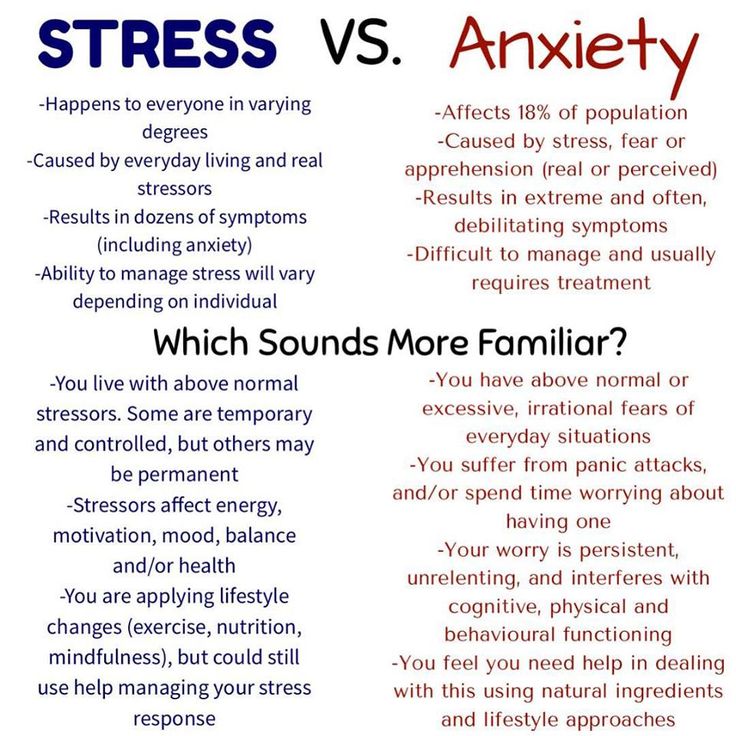 nine0143 1
nine0143 1
Facts About Generalized Anxiety Disorder
Generalized Anxiety Disorder is a condition characterized by excessive anxiety that greatly affects the patient's personal life, family and work. This concern is often related to responsibility, finances, or health - one's own or loved ones 1
nine0014
The degree of anxiety in patients with generalized anxiety disorder exceeds the potential for something bad to happen. 1
Patients with generalized anxiety disorder experience feelings of anxiety most of the time.
For example, a person may worry about their work, household chores, or being late for a meeting. The excitement of a person looks excessive compared to the real likelihood that something bad will happen, while
a person cannot control his feelings. If one anxiety passes, the patient switches to worrying about something else.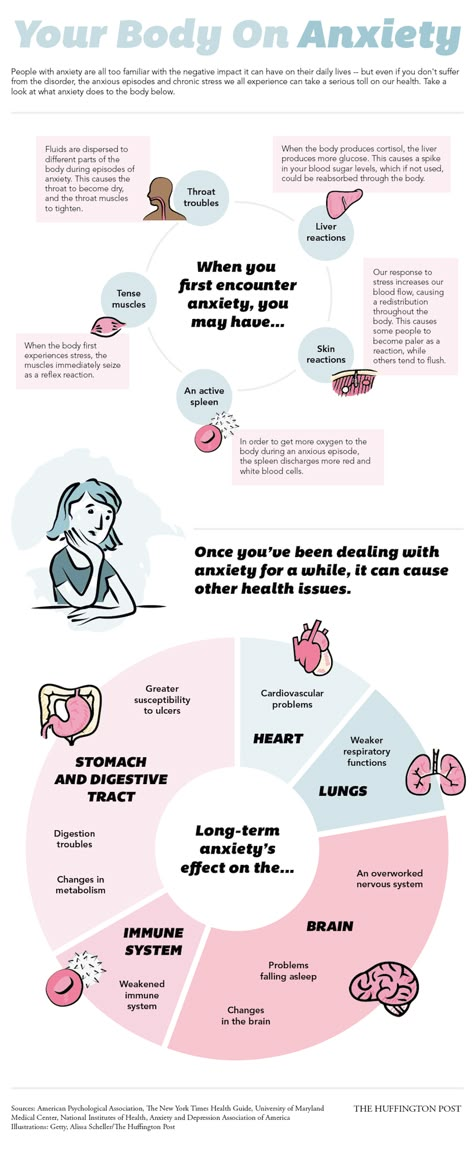
In addition to excessive anxiety, patients with generalized anxiety disorder suffer from symptoms such as difficulty concentrating, feeling "on edge", fatigue and irritability. Patients may also experience physical symptoms such as sweating, nausea, and diarrhea.
Symptoms of generalized anxiety disorder can occur and persist throughout life because it is a chronic condition, and only a few manage to completely overcome the symptoms.1
3.7%
of people suffer from generalized anxiety disorder worldwide. 2
fifty%
of people have their first symptoms before the age of 39 years. 2
51%
of people with generalized anxiety disorder are severely disabled in some aspect of their home, work, relationship or social life. 2
Epidemiology and disease burden nine0015
Globally, generalized anxiety disorder affects 3.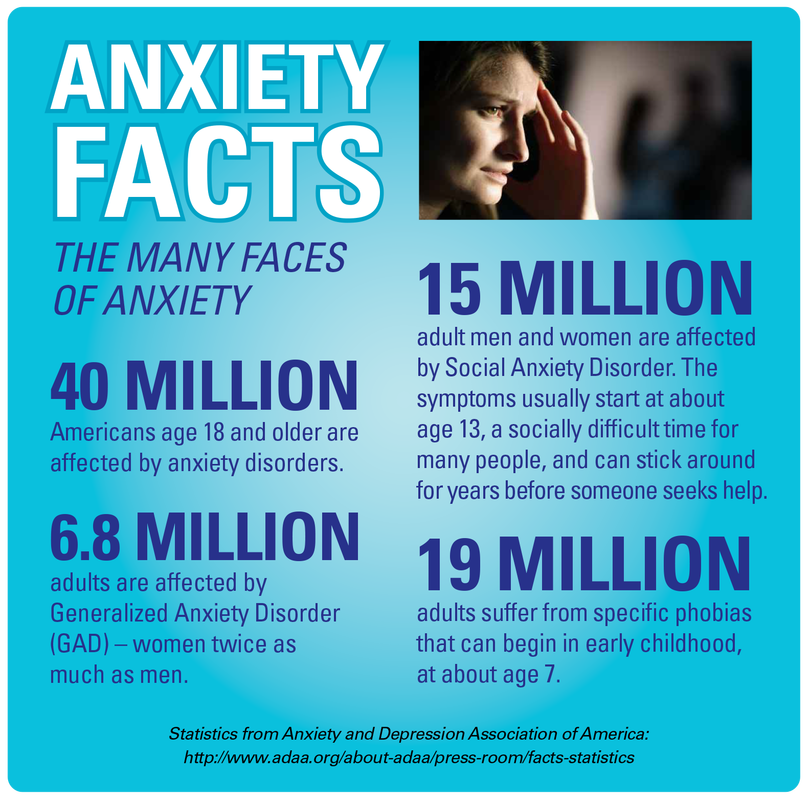 7% of the population. 2 The disease is more common in high-income countries (5.0%) than in low-income countries (1.6%). 2 Generalized anxiety disorder is most commonly diagnosed in middle-aged people, but symptoms can occur at any age. 1.2 Generalized anxiety disorder is twice as common in women as in men. nine0143 1
7% of the population. 2 The disease is more common in high-income countries (5.0%) than in low-income countries (1.6%). 2 Generalized anxiety disorder is most commonly diagnosed in middle-aged people, but symptoms can occur at any age. 1.2 Generalized anxiety disorder is twice as common in women as in men. nine0143 1
A World Health Organization (WHO) global survey found that 51% of people with generalized anxiety disorder have severely impaired functioning at home, work, personal relationships and social life. 2 Patients miss an average of 8 days of work per year due to illness. 3 People with generalized anxiety disorder have lower income and quality of life than healthy people. nine0143 4
Facts about Generalized Anxiety Disorder
Generalized anxiety disorder is twice as common in women than in men.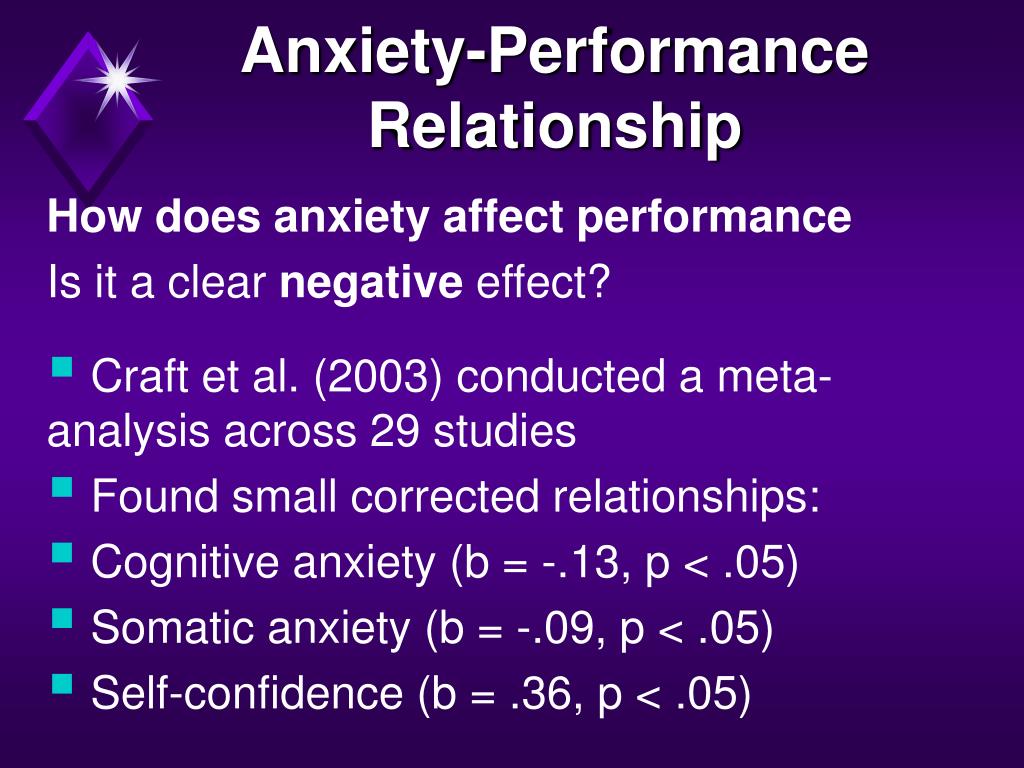 1
1
People with generalized anxiety disorder miss an average of 8 days of work or activities per year because of their disorder. 3
People who are concerned that they – or their loved ones – are experiencing symptoms of generalized anxiety disorder should see their doctor for help and advice. nine0003
Diagnostics
People who suspect they or a loved one have symptoms of generalized anxiety disorder should seek advice and help from a doctor. The diagnosis of generalized anxiety disorder is made by talking to a doctor about symptoms and history. Although the disease is widespread, one study showed that in 71% of cases it was not
detected at the initial examination by a doctor. nine0143 5 The high rate of misdiagnosis may be related to similar symptoms of anxiety and mood disorders, and the fact that patients with generalized anxiety disorder also suffer from other illnesses, most commonly social phobia.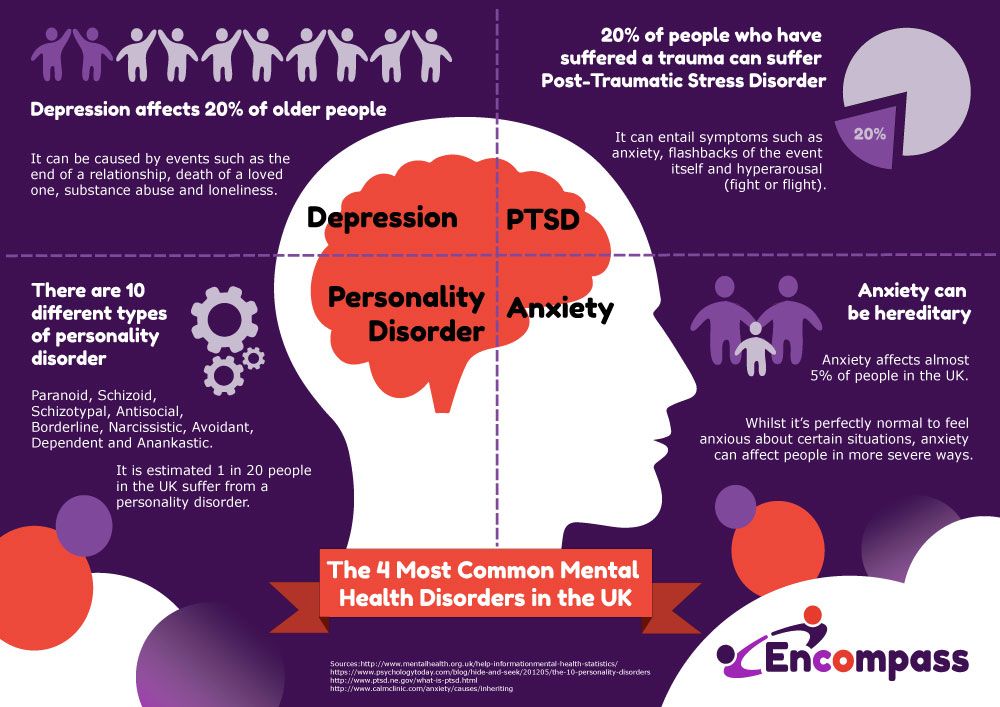 6
6
There is currently no specific treatment for generalized anxiety disorder, although it is possible to control symptoms and improve quality of life with a combination of medication and support from medical professionals and the patient's community. nine0143 7
- American Psychiatric Association. Diagnostic and Statistical Manual of Mental Disorders. 5 th ed. Arlington, VA: American Psychiatric Association; 2013.
- Ruscio AM, Hallion LS, Lim CCW, Aguilar-Gaxiola S, Al-Hamzawi A, Alonso J, et al. Cross-sectional comparison of the epidemiology of DSM-5 generalized anxiety disorder across the globe. JAMA Psychiatry. 2017;74(5):465–475.
- Alonso J, Petukhova M, Vilagut G, Chatterji S, Heeringa S, Üstün TB, et al. Days out of role due to common physical and mental conditions: results from the WHO World Mental Health surveys. Mol Psychiatry. 2011;16(12):1234–1246. nine0022
- Hoffman DL, Dukes EM, Wittchen HU.
 Human and economic burden of generalized anxiety disorder. Depress Anxiety. 2008;25(1):72–90.
Human and economic burden of generalized anxiety disorder. Depress Anxiety. 2008;25(1):72–90. - Vermani M, Marcus M, Katzman MA. Rates of detection of mood and anxiety disorders in primary care: a descriptive, cross-sectional study. Prim Care Companion CNS Disord. 2011;13(2):PCC.10m01013.
- Newman MG, Przeworski A, Fisher AJ, Borkovec TD. Diagnostic comorbidity in adults with generalized anxiety disorder: impact of comorbidity on psychotherapy outcome and impact of psychotherapy on comorbid diagnoses. Behav Ther. 2010;41(1):59-72.
- Bandelow B, Michaelis S, Wedekind D. Treatment of anxiety disorders. Dialogues Clin Neurosci. 2017;19(2):93–107.
- American Psychiatric Association. Diagnostic and Statistical Manual of Mental Disorders. 5 th ed. Arlington, VA: American Psychiatric Association; 2013.
- Ruscio AM, Hallion LS, Lim CCW, Aguilar-Gaxiola S, Al-Hamzawi A, Alonso J, et al. Cross-sectional comparison of the epidemiology of DSM-5 generalized anxiety disorder across the globe.



